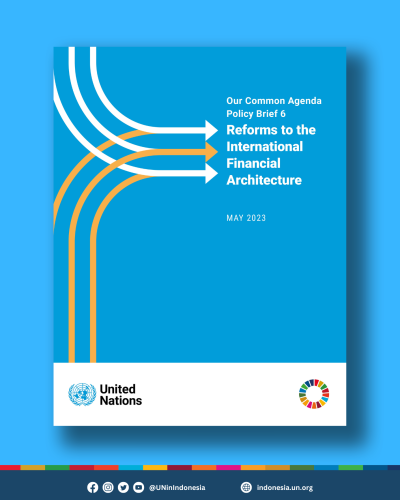Our Common Agenda - Policy Brief 6: Reforms to the International Financial Architecture

The modern world, with its array of challenges from climate change to social inequality, is straining the international financial architecture put in place in 1945, exposing its deep-seated deficiencies. This is the central theme of a new policy brief entitled "Our Common Agenda Policy Brief 6: Reforms to the International Financial Architecture," issued as part of the preparations for the upcoming Summit of the Future in 2024. The policy brief builds on the Secretary-General's previous report "Our Common Agenda," responding to the call for a more effective global governance system to tackle today's unprecedented challenges and ensure a better future for all.
The brief critiques the current international financial system for being ill-suited to the 21st-century world. It argues that the architecture, conceived in the post-war era for industrialized nations, is wholly unprepared for the critical issues we face today, including relentless climate change, systemic risks, deep-seated inequality, and rapidly changing demographics, technologies, and geopolitical landscapes. This outdated architecture has notably failed to mobilize long-term investments at the scale needed to address the climate crisis and achieve the United Nations' Sustainable Development Goals for the world's 8 billion people.
The policy brief calls for urgent and ambitious reforms to the international financial and tax architecture, focusing on six areas: global economic governance; debt relief and the cost of sovereign borrowing; international public finance; the global financial safety net; policy and regulatory frameworks to address short-termism in capital markets; and a global tax architecture for equitable and sustainable development. The goal is to bridge the gap between developed and developing countries and prevent further fragmentation of international financial and economic relations. The suggested reforms aim to create a system that proactively supports the realization of human rights and the achievement of sustainable, inclusive, and equitable transformations, beginning with more representative and effective global economic governance. You can download the English version of "Our Common Agenda - Policy Brief 6: Reforms to the International Financial Architecture" through the button below this article.










